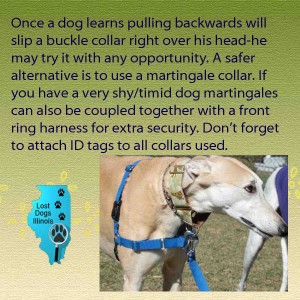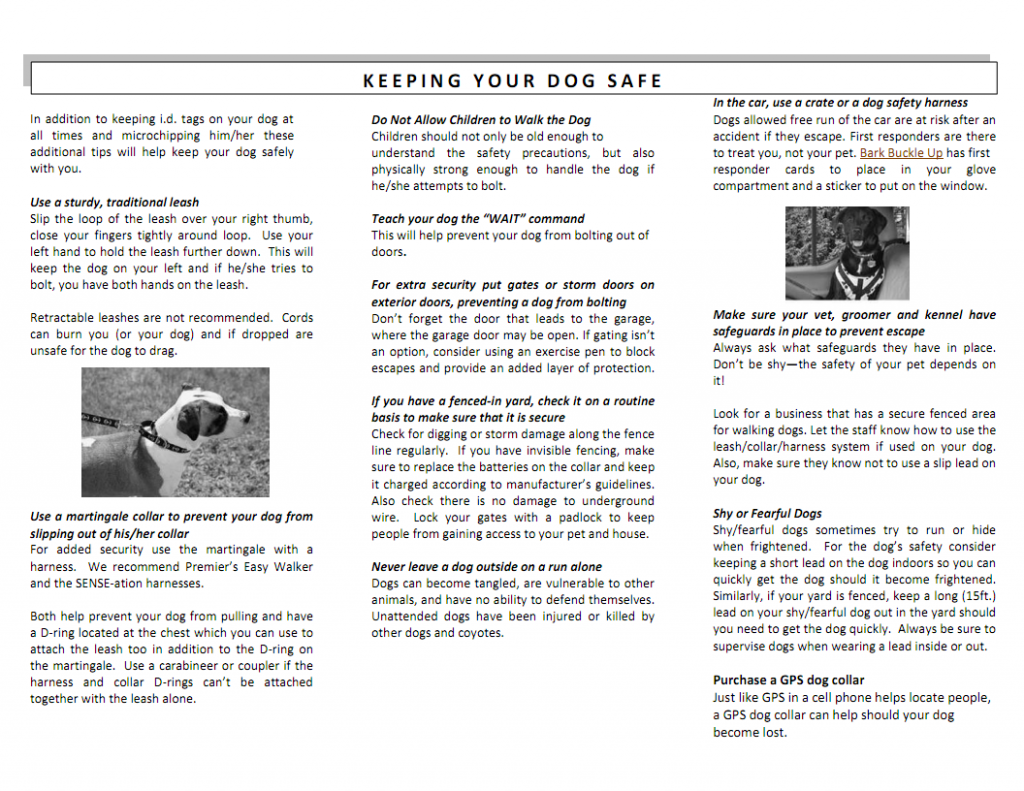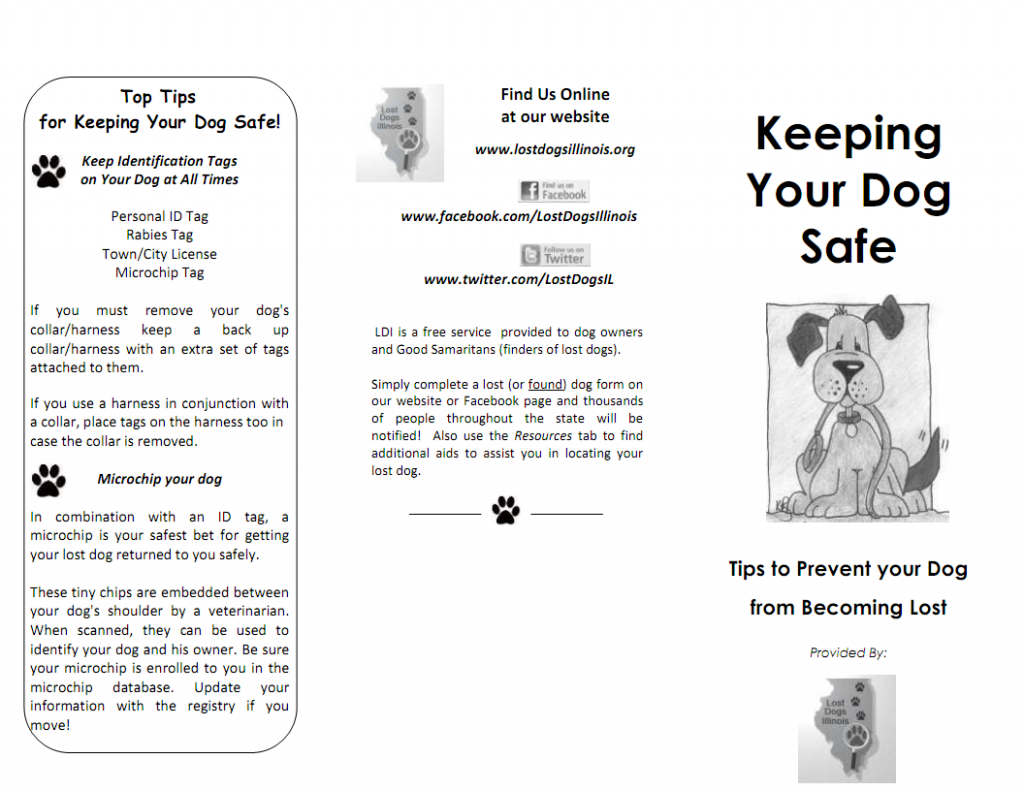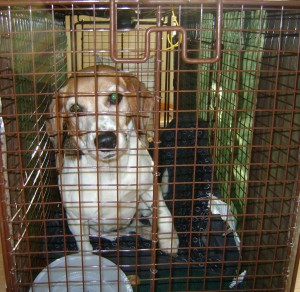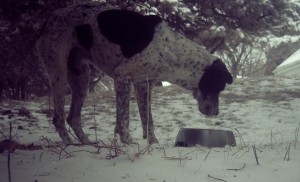
Your team of volunteers has worked hard at flyering and posting signs and now you’re getting some sightings! This article will cover what we have found to be the best method for handling these.
The point person should keep a sighting journal. It is hard to remember all of the details from a phone call. Something that may seem insignificant at first may become very significant as time goes on. So most importantly, get the name and phone number of the caller, so that you can call back with any extra questions!
Ask the right questions and make detailed notes.
1. Where did you see the dog? Ask them to please be specific. For example: the dog was going north on Ash street toward the Bay City Mall. On the other side of the street was Walmart.
2. When did you see the dog? What was the weather like? Again, ask for specifics. Example: The dog was seen at 10 a.m. on Monday, August 5th. It was raining at the time.
3. Can you describe the dog? Was he wearing a collar? What color was the collar? Did he seem okay?
4. What was he doing? Was he trotting, running, darting in and out of traffic, sleeping, playing with other dogs, walking calmly, etc?
5. How was he carrying his body and tail? Was he low to the ground, almost crawling? Was his tail up or down or waggin?
Record all of these details in your journal and then post the sightings to a map. You can use an old-fashioned paper map or you can use an interactive google or Mapquest map that you can share with your volunteers. We recommend that you NEVER share this or any sighting information with the public.
The number one cause of death of lost dogs is that they panic and run into traffic and are killed by a car. When you post sighting locations – you are encouraging reward seekers, wanna be heroes, and overzealous people from rushing to the location and frightening the dog.
Remember, the whole goal now is to let the scared lost dog settle in the area. Then you can implement a plan to catch him (trapping, luring, etc.). But if you are constantly pressuring the dog, he will keep moving, and you will always be behind him. You will have to keep flyering more and more areas and this will be draining on your volunteers. Remember that most of your volunteers have full time jobs, and their own families and dogs to look after. You will need to respect their time and maximize their efforts.
Make sure that your volunteers understand that the goal is to allow the dog to settle in an area. They must change their mindset from “searching” to “luring”. You wouldn’t try to chase and catch a feral cat. You start feeding a cat in one location and then you trap them. You will use this same approach for a scared, missing dog.
After you get off the phone with the caller, immediately gather the necessary supplies and head to the location. The person most bonded to the dog (if it isn’t you) should also go. But you do not want a large group. You will need:
- smelly treats (think hotdogs, liverwurst, canned cat food)
- water and bowls
- slip lead, regular leash and collar
- flyers
- trail camera (or fireplace ashes or cornstarch)
When you arrive at the sighting location:
- Don’t slam the car door!
- Stay calm – the dog will feel your nervous energy and may take off again. He could be in hiding watching you.
- If you see the dog (possible but not probable):
- The person who is most bonded with the dog should sit or lie down by themselves and scatter tasty treats around themselves and WAIT. It may take minutes or hours for the dog to creep slowly towards them. The dog may circle around and approach from behind. Put your phone on silent and don’t talk on it. Everybody else should leave the area.
If you do not see the dog:
Don’t waste time driving around.
Immediately go door to door and flyer – speaking with everyone. Call in more volunteers to help with this.
If no one is home – leave a flyer that you have handwritten on: SEEN! 4 p.m. May 31 at the edge of your property or corner of this block or across from the Walgreens. Be specific so the home owner knows to keep a look out. Make sure your flyers clearly state the nobody should call or chase the dog. Just call with sightings.
Before leaving the sighting area:
Leave food and water! Anything except dry kibble (which doesn’t have an odor). Again, think smelly, scrumptious food. If you have a trail camera set it up facing the food so that you can see if the dog is approaching and eating when you aren’t there. . If you don’t have a trail camera, sprinkle fireplace ashes or cornstarch around the bowls so that you can examine the area for tracks when you return.
Remember, when the lost dog’s needs are being met:
He will start to let down his guard.
He will start to trust people and return to a domesticated state of mind.
Your chances of safely capturing him are greatly increased.
Don’t be too quick to dismiss a sighting. Most sightings are legitimate. People describe dogs differently so don’t dismiss a sighting because the description does not match exactly. Remember, that the public may not know dog breeds or sizes like you do. They may call an American Eskimo Dog a Samoyed. Or a shepherd mix a husky. Assume that every sighting is legitimate, unless absolutely proven otherwise, and mark it on the map. Dogs can travel great distances very fast, especially if they have been pursued. They may be using shortcuts that you aren’t aware of. Don’t assume that a sighting is too far away to be your dog. You will be able to use your map to give you clues to your dog’s paths and patterns.
Next, we will discuss common pitfalls and mistakes that are often made when a rescue is searching for one of their foster or newly adopted dogs. We will try to give you some advice to avoid these pitfalls.
See part 5 https://www.lostdogsillinois.org/harnessing-the-energy-part-5-common-pitfalls/
Previous article https://www.lostdogsillinois.org/harnessing-the-energy-part-3/







